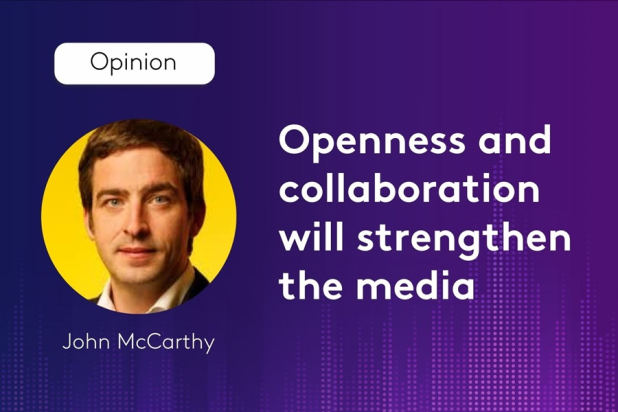Kantar Media’s latest study shows that success requires skills and behaviours that go beyond the individual, writes John McCarthy

You don’t really need me to say it, but the media industry is no stranger to change. Built upon vast oceans of data, technology, creativity, strategic thinking, and fierce competition, our media world is characterised by a unique dynamism. It’s what makes it so interesting. And driving this are people like you – highly skilled, ambitious, always learning. But let’s be realists – the speed of transformation can feel dizzying. Success now relies not just on learning new skills or behaviours, but also on attracting diverse talent that can navigate and shape the future.
Recognising the urgency of this shift, Kantar Media conducted a pulse survey earlier this year, gathering input from media leaders in 53 markets. The results, published here, offer valuable insights into how our ecosystem must prepare for the future by addressing its evolving skills needs. And there’s no doubt: a significant majority of media professionals believe that skill sets must evolve to match the pace of change.
But this isn’t just about individual or team capabilities. The skills that need development go beyond the personal level and extend to the ways entire organisations behave. And among all the priorities highlighted in the report, for me, one stands out: openness. It’s a broad concept, so let’s take a closer look at what it really entails for our industry.
New perspectives
At a fundamental level, one of the most significant shifts is the openness to embrace talent from outside the sector. Our results show that 66% of respondents highlighted the importance of recruiting from other industries to bring fresh perspectives and disrupt conventional thinking.
Certainly, as media adopts transformative technologies such as AI, cross-industry recruitment allows organisations to draw on new ideas and approaches.
An openness to new and diverse talent streams – and thus fresh ideas – will not only enrich internal teams, but also prevent organisations from becoming insular or stagnant, ensuring that they remain competitive and innovative.
Indeed, there is also a clear need to open up to new ways of working and thinking entirely. The survey results show that 90% of media leaders believe it is crucial to recruit individuals who challenge their organisation’s current approach. This drive for disruption reflects an understanding that clinging to traditional methods or modes of working can be a liability.
For example, while technical skill in working with data is essential, the real challenge lies in telling a compelling story with it. This is why our results show the power of good communications and storytelling are deemed the highest value skills in demand in 2024 and beyond.
Therefore we now see data analysts and researchers being encouraged to tighten their embrace of creativity, while storytellers are learning to reappraise the added value of data-driven insights. This fusion of creativity and analysis holds immense potential for driving innovation and delivering meaningful value, but requires openness from organisations and their teams to do things differently; to evolve and adapt and seek to learn.
Collaboration is key
Openness is not only an individual trait but also a vital organisational approach. It plays a critical role in how organisations collaborate both internally and with partners, and this requires individuals to be skilled in building relationships and seeing the bigger picture beyond the confines of their organisation.
For example, initiatives such as Robyn, led by Meta and C-Flight from Comcast and Sky, are now available to other players, demonstrating a commitment to fostering collaboration for the greater good of the industry. This open-source approach not only benefits individual companies but also strengthens the broader media ecosystem by enabling shared progress.
Expanding and opening up trade bodies to new entrants is another example. Thinkbox, the UK marketing body for commercial TV, now counts Netflix and Amazon Ads as associate members, demonstrating how significant this behaviour is – and how a rising tide elevates all boats.
At the same time, openness must also be a deeper internal consideration. Organisations need to foster an environment where their teams can expand their skill sets, particularly in response to emerging technologies such as generative AI and advanced data analytics. Building a culture of continuous learning and adaptation is essential for staying competitive in an era where technological advances could quickly render established skills obsolete. We have a collective responsibility to encourage our teams to embrace new tools and approaches, creating a more agile workforce that can keep up with the industry’s demands.
One of the biggest challenges to openness, however, lies in addressing unconscious bias in recruitment. While many media organisations recognise the value of diversity, 70% of respondents believe there is still work to be done in attracting talent from all backgrounds.
Bias in hiring processes can prevent organisations from fully realising the benefits of openness, as it limits the diversity of thought and perspective that drives innovation. To combat this, some companies are adopting tools like Textio, which removes bias from job descriptions, and using objective scorecards during interviews. These efforts are crucial to ensuring that media organisations reflect the diversity of the audiences they serve or seek to understand, and remain open to all talent, regardless of background.
Ultimately, openness and collaboration influence nearly every facet of today’s media landscape. It’s therefore time to consider more strategically how these values will shape the future.
Click here to view the full findings and get in touch with a member of the team for more information.